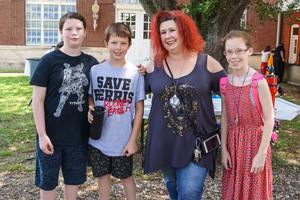Kindergarten is a big step for both child and parent. Here are some tips to help you best prepare your preschooler for the transition to “the big K.”
1.Teach concepts. While it’s helpful to head into kindergarten knowing colors, shapes and numbers, comparative concepts and opposites can help children better understand and communicate what they’re thinking. Work on simple, visible comparisons like “bigger,” “shorter,” and “under,” as well as tangible opposites like wet and dry, or soft and hard.
This is also a good age to talk about the basics of bullying (what it is and what to do if you experience or see it), safety (stranger danger), manners (respect for self and others) and general differences between people (cultural, physical, abilities, etc.). Try to incorporate one of these discussions into an existing or occurring situation, rather than sitting down the week before school to go over everything. Seeing a child in a wheelchair at the store might present an opportunity to discuss differences – and perhaps bullying – on the ride home.
2. Let her make choices. It’s natural for even the most outgoing kids to be nervous about kindergarten – especially if they didn’t attend preschool. Involving your child in decisions can help them feel a bit more in control when facing the unknown. Let them help choose school supplies, snacks or brown-bag lunches, barrettes, outfits – and maybe even dinner on the first day of school. Cut photos of foods from a magazine and create a shopping list or menu for the first week of school. Have her lay out several outfits for the first week of school and post photos of each in her room so she can get dressed without help – or hassle.
3. Stay social. A lot of kindergarten is based on sharing, collaboration, cooperation and interaction. Children who have attended daycare, regular playgroups and group classes or have siblings close to their age naturally have more practice. Find opportunities to encourage interaction with other kids – even if they’re not the same age. Playgrounds, dance or gymnastics classes, YMCA and hourly care facilities can all provide great sources to practice social skills.


